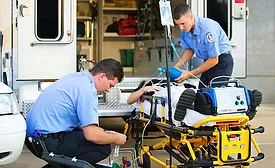Home » security training
Articles Tagged with ''security training''
6 Steps Toward Effective Security Training
Is your venue prepared? The importance of training to dramatically reduce risk.
August 28, 2018
How to Promote Continuous Improvement in Threat Assessment Programs
How to Utilize the Homeland Security Exercise and Evaluation Program (HSEEP) Framework
August 15, 2018
Sign-up to receive top management & result-driven techniques in the industry.
Join over 20,000+ industry leaders who receive our premium content.
SIGN UP TODAY!Copyright ©2026. All Rights Reserved BNP Media.
Design, CMS, Hosting & Web Development :: ePublishing












